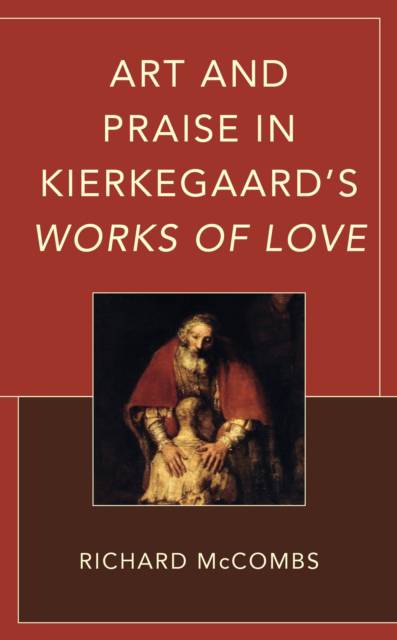
- Afhalen na 1 uur in een winkel met voorraad
- Gratis thuislevering in België vanaf € 30
- Ruim aanbod met 7 miljoen producten
- Afhalen na 1 uur in een winkel met voorraad
- Gratis thuislevering in België vanaf € 30
- Ruim aanbod met 7 miljoen producten
Zoeken
Omschrijving
Since art is essential to the love of one's neighbor as oneself and to love's chief goal of building up one another, we cannot understand love without also understanding its art. Observing that praise is ubiquitous in Søren Kierkegaard's writings, Richard McCombs interprets Kierkegaard's Works of Love as a eulogy of love's arts of forgiveness, peace-making, and building up one's neighbor in maturity and charity. Kierkegaard stresses love's ability to achieve results, calling love irresistible and almost magical in overcoming obstacles to its purposes; living the life of faith and love involves skillful attention to the specificity of the episodes in an individual's life, and the creative imagining of new ways of enacting these virtues. McCombs argues that Kierkegaard's ideas about the art of love reveal limits or exceptions to his individualism and to his anti-consequentialism in ethics. Art and Praise in Kierkegaard's Works of Love explores Kierkegaard's distinct praises of love through texts like Works of Love, The Brothers Karamazov, and Middlemarch to illustrate, complement, and sometimes correct Kierkegaard's profound account of love's art and wisdom, suggesting ways that the art of praise bears on other questions in aesthetics, ethics, and religion.
Specificaties
Betrokkenen
- Auteur(s):
- Uitgeverij:
Inhoud
- Aantal bladzijden:
- 194
- Taal:
- Engels
- Reeks:
Eigenschappen
- Productcode (EAN):
- 9781666936056
- Verschijningsdatum:
- 19/12/2023
- Uitvoering:
- Hardcover
- Formaat:
- Genaaid
- Afmetingen:
- 152 mm x 229 mm
- Gewicht:
- 453 g

Alleen bij Standaard Boekhandel
+ 339 punten op je klantenkaart van Standaard Boekhandel
Beoordelingen
We publiceren alleen reviews die voldoen aan de voorwaarden voor reviews. Bekijk onze voorwaarden voor reviews.







